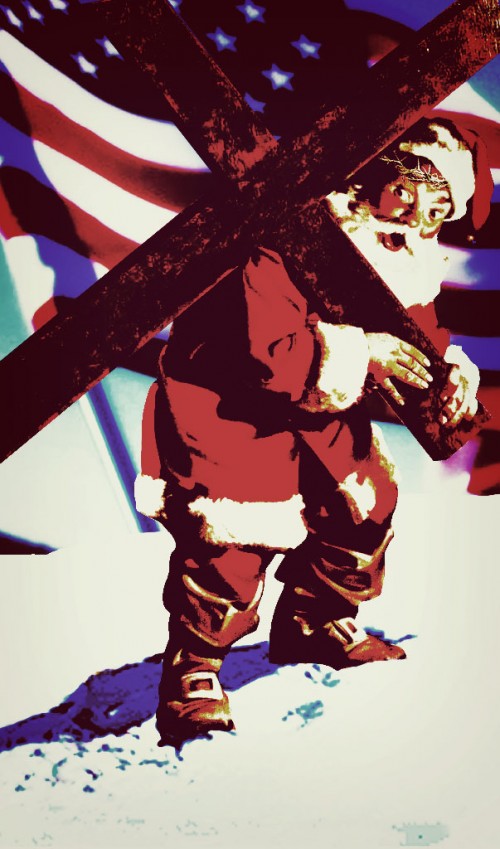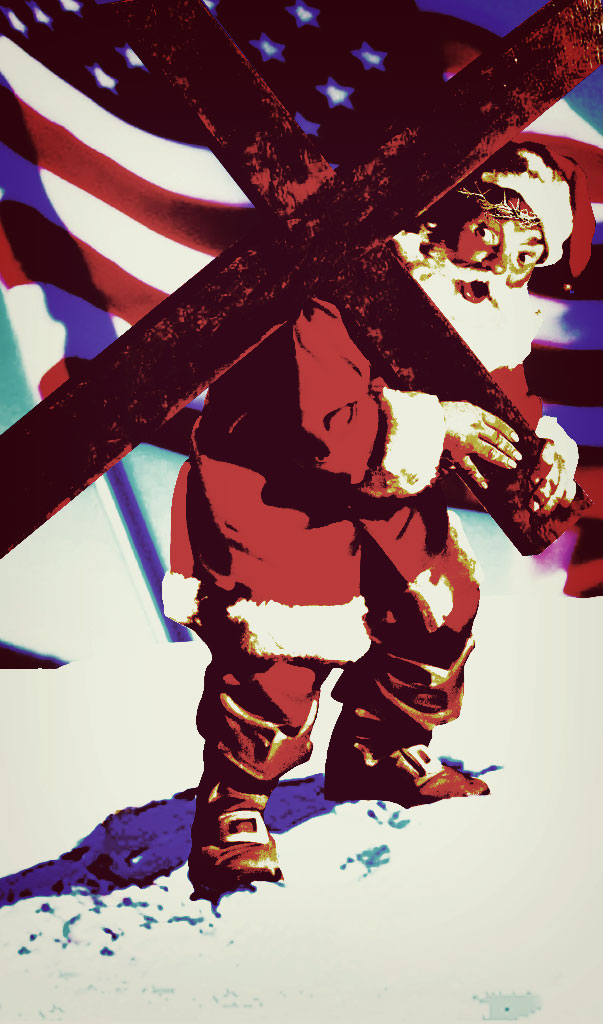
As the Puritan Pilgrims began to settle the new world of America, they came seeking religious freedom from their British oppressors.
And as such, one of the traditions they sought to “redeem” from early on was that of the Christmas holiday.
The Puritans saw no scriptural justification for celebrating the holiday and noted that the Sabbath was the only holy day sanctioned in scripture.
They saw the Christmas holiday as a celebration filled with paganism and idolatry.
In The Puritans at Play, Bruce Colin Daniels writes “Christmas occupied a special place in the ideological religious warfare of Reformation Europe.” Most Anabaptists, Quakers, Congregational and Presbyterian Puritans, he observes, regarded the day as an abomination while Anglicans, Lutherans, the Dutch Reformed and other denominations celebrated the day as did Roman Catholics. When the Church of England promoted the Feast of the Nativity as a major religious holiday, the Puritans attacked it as “residual Papist idolatry”.
The Puritans also argued that Christmas was ahistorical and selecting December 25th as a date to celebrate the birth of Jesus was nothing more than a hijacking of a pagan Roman festival.
The Puritans saw far greater value in celebrating with a day of thanks (Thanksgiving) instead of the, “long eating, hard drinking, lewd gaming, rude revelling” that accompanied the Christmas holiday. Puritan leader Cotton Mather noted that Christmas celebrations “have more of hell than heaven” in them.
In fact, in many areas, celebrating Christmas was made illegal.
In 1659 the General Court of Massachusetts enacted a law to punish citizens “found observing, by forbearing from labor, feasting, or any other way, any days such as Christmas.” The law remained until 1681 and penalties included fines, imprisonment or whipping.
North and South
As America grew, many have pointed to a split between North (the Puritans) and South (the Anglicans) when it came to views of Christmas.
Northern states tended to stay with the staunch conservative views of forbidding the celebration of the holiday and seeing Thanksgiving as the more appropriate holiday for celebrating, while Southern states tended to celebrate the holiday with a 12-day break from work.
And for both groups, gift-giving was rarely a part of the celebrations.
Those who chose to celebrate Christmas in the North often did so quietly with their families at home — often still doing chores and other work around the house.
Colonial Virginians and other Southerners put far more emphasis on partying than gift-giving.
Southern households, including their slaves, would take a break from their work and slaves would be allowed to visit friends and family at nearby plantations.
Frederick Douglas wrote in his auto-biography:
The days between Christmas Day and New Year’s were allowed the slaves as holidays. During these days all regular work was suspended, and there was nothing to do but keep fires and look after stock. We regarded this time as our own by the grace of our masters, and we therefore used it or abused it as we pleased.
The holidays were variously spend. The sober industrious ones would employ themselves in manufacturing cornbrooms, mats, horse-collars, and baskets, and some of these were very well made. Another class spent their time in hunting opossums, coons, rabbits, and other game. But the majority spent the holidays in sports, ball-playing, wrestling, boxing, running, foot-races, dancing, and drinking whisky, and this latter mode was generally most agreeable to their masters.
A slave who would work during the holidays was thought by his master undeserving of holidays. There was in this simple act of continued work an accusation against slaves, and a slave could not help thinking that if he made three dollars during the holidays he might make three hundred during the years. Not to be drunk during the holidays was disgraceful.
We were induced to drink, I among the rest, and when the holidays were over we all staggered up from our filth and wallowing, took a long breath, and went away to our various fields of work, feeling, upon the whole, rather glad to go from that which our masters had artfully deceived us into the belief was freedom, back again to the arms of slavery. It was not what we had taken it to be, nor what it would have been, had it not been abused by us.
It was about as well to be slave to master, as to be a slave to whisky and rum. When the slave was drunk, the slaveholder had no fear that he would plan an insurrection, or that he would escape to the North. It was the sober, thoughtful slave who was dangerous and needed the vigilance of his master to keep him a slave.
It’s legal, but…
And while some of the feelings towards Christmas began to soften over the years, and laws against Christmas were repealed by 1681, officials in New England continued to frown upon gift giving and reveling.
Evergreen decoration was expressly forbidden in Puritan meeting houses and discouraged in the New England home as it was more commonly associated with Pagan celebrations.
The 1719 Boston Almanac didn’t mention the Christmas holiday but did recommend that in late December, “do not let your children and servants run too much abroad at night.”
Schools in Boston remained in session on Christmas day until as late as 1870.
It wasn’t until June 26, 1870, 211 years after Christmas was originally outlawed, that Christmas was declared a federal holiday — three weeks after the death of Charles Dickens, the author of A Christmas Carol.
Sources:
Christmas in Puritan New England (Wikipedia)
Narrative of the Life of Franklin Douglass
How Christmass Got the Pre-eminence in the USA
Christmas history in America
History Channel
Photo art by Jonathan Blundell with images from http://www.flickr.com/photos/rog2bark/3676222439/ and http://www.flickr.com/photos/akitzmil/3396738706/
UPDATE: I originally reported that Congress stayed in session on Christmas Day. Before publishing the article I tried tracking down the exact dates information but couldn’t find any official information and went with the information from The History Channel. Politifact did track down the information and shared it the information on their site. According to Politifact and the Congressional journals, while they did not typically take a recess for the Christmas holiday, Congress did NOT meet on Christmas Day. It looks like myself, The History Channel, Jon Stewart and the ACLU were wrong on this fact.
